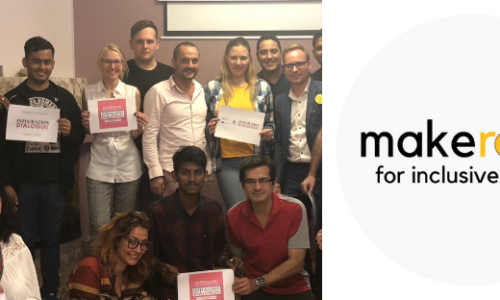What to do if you face discrimination at work?
A story of an Indian student in Latvia
Pranav studies at one of the Latvian universities. He also works at one of the restaurants in the Old Town of Riga. He started to work before his job contract was signed as the employer promised to issue the job contract as soon as possible and pay for all the hours Pranav has worked even before the contract is signed. Also, Pranav worked overtime. His job contract was signed after 26 days of working. According to the law and Pranav’s contract, as a foreign student of a bachelor programme he cannot work for more than 20 hours a week.
Although it’s been more than a month since Pranav signed the job contract and every other employee has received their salary, Pranav has not yet received his salary. The employer requested Pranav to work over-time but did not get paid. For Pranav not to complain about not receiving salary on time, the employer paid him part of the salary in cash. Also later, the employer did not pay Pranav the full salary according to the contract, unlike other local employees, and requested Pranav to work unpaid overtime. Pranav was afraid to complain about the employer’s behavior, given that finding another job for a foreigner in Latvia would be difficult. However, a year later, when he had felt much more familiar in Riga, Pranav had found friends and realized that it was not acceptable and left the job at the restaurant.

What to do in a similar situation?
If an employee suspects a possible divergent treatment due to his/her ethnicity, nationality or any other prohibited features or experiences any other type of unlawful behavior, an employee has the right to submit a complaint at the State Labour Inspectorate (Valsts darba inspekcija – VDI). The VDI needs to examine whether there have been violations of the Labour law and/or violation of the prohibition of discrimination. If the VDI finds that there has been discrimination against the employee, the employer can be issued a fine.
Violation of the prohibition of discrimination is also a reason to file a case to the court to receive a compensation for causing non-pecuniary damage.
If you suspect you have faced discrimination at work, we encourage you to consult with the Office of the Ombudsman or the Latvian Human Rights Center.
In order to consult on what to do in a specific situation, a person can contact the Office of the Ombudsman or the Latvian Centre for Human rights.
Why is it important to report discrimination?
Unjustifiably different treatment of persons on grounds such as skin colour, national or ethnicity, gender, age, sexual orientation, disability, etc. is prohibited.
It is important to report cases of discrimination in order to defend your rights, to receive a compensation for the damage caused, as well as, to prevent discrimination from happening.
Useful contacts
State Labour Inspectorate:
(Valsts darbs inspekcija – VDI)
K.Valdemāra iela 38 k-1, Rīga, LV-1010
Tālr. (+371) 7021704, (+371) 67186522
E-pasts: vdi@vdi.gov.lv
The Ombudsman’s Office:
(Tiesībsarga birojs)
Baznīcas ielā 25, Rīgā, LV-1010
Tālr.:(+371) 67686768,
E-pasts: tiesibsargs@tiesibsargs.lv
Latvijas Cilvēktiesību centrs:
The Latvian Centre for Human Rights
Skolas ielā 21, 609C, Rīgā, LV-1010
Tālr.: (+371) 67039290
E-pasts: office@humanrights.org.lv
This informative material is created as part of the project “Towards a more tolerant society: information, education, support and cooperation.” The project is funded by Iceland, Liechtenstein and Norway through the EEA and the Norwegian grant programme “Active Citizens Fund”.
Make Room Europe and the Latvian Centre for Human Rights are fully responsible for the content of this material.



